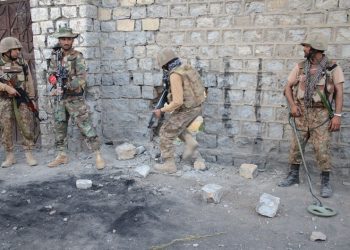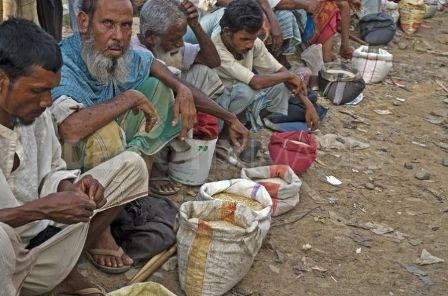WEB DESK
Even as the Asian Development Bank (ADB) reaffirmed around $2 billion in support for flood-hit Pakistan, the bank expressed the belief that Islamabad needs to focus on macroeconomic stabilization and good governance along with reconstruction efforts.
This was stated by Asian Development Bank (ADB) Vice President Asian Development Bank (ADB) Vice President Shixin Chen on Monday during his speech at the International Conference on Climate Resistant Pakistan in Geneva, Switzerland.
Shixin said that Pakistan, despite its very low carbon emissions, is one of the countries most affected by extreme weather events, the floods highlight the importance of building back better with climate resilience.
“It is also important that climate adaptation ecosystem should be institutionalized across all sectors,” he said.
He further said that ADB has acted swiftly to support Pakistan’s flood response.
In addition, assistance announced for the Post-Disaster Needs Assessment (PDNA), and the government’s Resilient Recovery, Rehabilitation, and Reconstruction Framework (4RF), the bank had approved a $557 million emergency flood-assistance package to Pakistan on top of a $1.5 billion countercyclical program, which also partly supports social protection and food security in flood-affected areas.
Meanwhile, sizable additional co-financing has been mobilized.
The ADB vice president further said that they were very pleased to see the framework reflect the fact that investing in infrastructure alone cannot build resilience – rather a concerted, comprehensive, and long-term commitment can help to reduce risk.
Going forward, he said that the ADB will reprioritize up to $1 billion for climate and disaster risk reconstruction as well as resilience support over the next three years.
Key sectors of support include agriculture and natural resources, urban services, social protection, health, and public financial management. We welcome the continued efforts with development partners on co-financing to maximize the impact of our support to Pakistan.
He further said that the framework forms a strong basis for the government’s comprehensive disaster recovery plans, with principles and priorities for future action set out over the short, medium, and long term.
Shixin further added that as Asia and the Pacific’s climate bank, ADB is aiming to deliver $100 billion in cumulative climate financing by 2030.
“We have initiated the Energy Transition Mechanism, a scalable, market-based approach to accelerate the transition from fossil fuels to clean energy, and as a new approach brought to COP27, we’re piloting the Innovative Finance Facility for Climate in Asia and Pacific, IF-CAP, to scale up climate financing,” he said.
The ADB recognized the urgency of our collective action to support Pakistan on its path to recovery and disaster resilience.
“While we cannot prevent the next natural hazard, collectively we can stop the next incident from becoming a disaster,” he said, adding that they are ready to work hand-in-hand with partners, the government, and people of Pakistan, to ensure that the good intentions expressed today are converted into making a real difference on the ground.















































